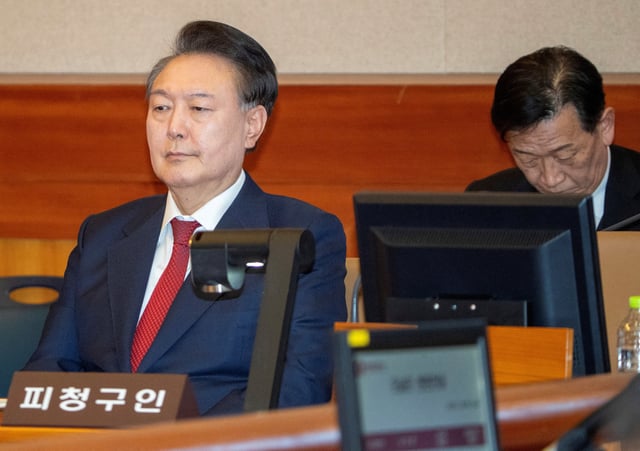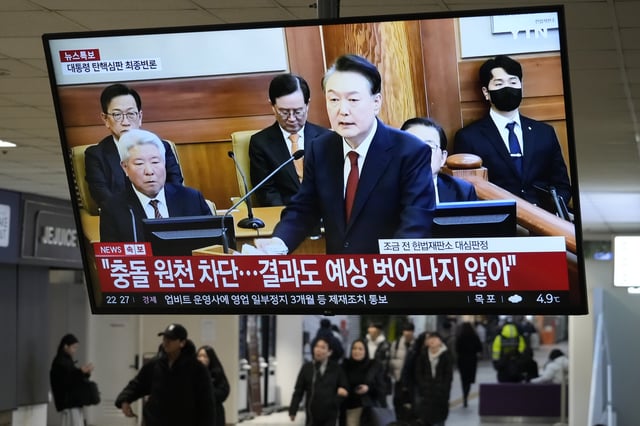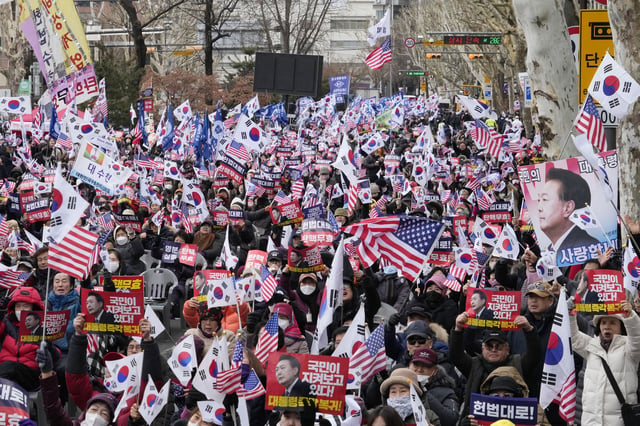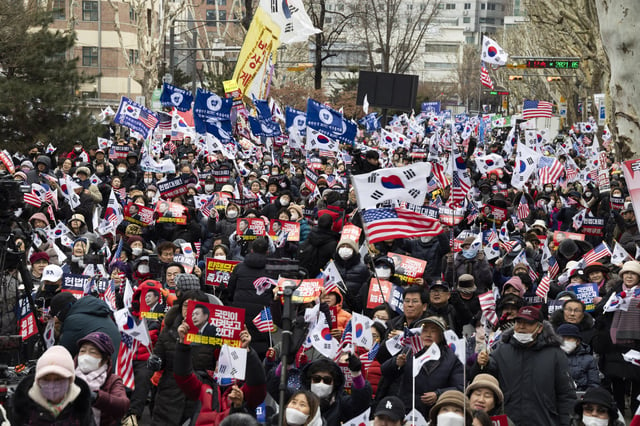Overview
- President Yoon Suk Yeol declared martial law on December 3, suspending civilian rule for six hours before parliament overturned the decree and impeached him.
- Yoon faces impeachment proceedings at South Korea's Constitutional Court, with a verdict expected by mid-March that could remove him from office permanently.
- Parliamentary lawyers argue Yoon's actions violated the constitution and posed a threat to democracy, comparing him to past authoritarian leaders.
- Yoon defends his decision as a response to what he described as a 'national crisis' caused by opposition obstruction, but denies intending to impose full military rule.
- If impeachment is upheld, South Korea will hold a presidential election within 60 days, and Yoon also faces separate criminal charges of insurrection, which carry severe penalties.



